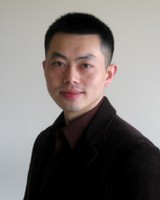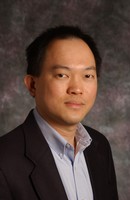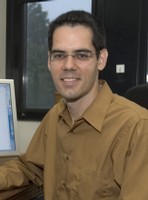Highest honor for beginning scientists and engineers

NEW BRUNSWICK, N.J. – Three Rutgers University professors have been recognized by the White House as outstanding early career researchers, the highest honor that a beginning scientist or engineer can receive in the United States.
Rutgers professors Jimmy de la Torre, Hao Lin and Charles R. Keeton II are among 20 young researchers nominated by their funding agency, the National Science Foundation (NSF). They were named winners of 2008 Presidential Early Career Awards for Scientists and Engineers (PECASE) today.
The awards recognize those who show exceptional potential for leadership at the frontiers of knowledge and demonstrate community service through scientific leadership, education or community outreach.
Lin, de la Torre and Keeton also hold five-year NSF Faculty Early Career Development Program (CAREER) awards. These awards give outstanding junior faculty a secure financial footing to establish research programs and share knowledge through outreach programs.

Lin says that winning a PECASE will help him gain more widespread notice for his research and additional collaborators to join an interdisciplinary effort.
“I took an adventurous approach as an assistant professor by going in a new direction in a tough funding environment,” Lin said. He noted that collaboration between mechanical engineering and the biomedical fields is challenging, yet ripe with opportunity. “This award,” he said, “will add credibility to my future grant proposals.”
Lin earned a bachelor’s degree from Beijing University in 1996 and a doctorate from the University of California at Berkeley in 2001. He did postdoctoral research at Stanford in micro fluidic devices to advance “lab-on-a-chip” concepts before joining Rutgers in 2005.
He is a resident of New Brunswick.

“This honor recognizes that rigorous work with important practical implications is being conducted in educational settings,” de la Torre said. “With the attention from this award, I look forward to researchers from other disciplines joining me in contributing and enriching this highly collaborative field. I also hope that it focuses on the critical need for the development of more diagnostic assessments.”
De la Torre earned his bachelor’s degree in psychology in 1992 and his master’s degree in statistics in 1997, both from the University of the Philippines. In 2001 he earned an additional master’s degree in statistics, followed by a master’s degree in psychology in 2002, and a doctorate in quantitative psychology in 2003, all from the University of Illinois at Urbana-Champaign.
He is a resident of Highland Park.

Keeton is also working to help undergraduate students develop a rich understanding of scientific critical thinking. He mentors undergraduates in research and has created a seminar course in which students learn to evaluate the evidence and analyze the arguments that astronomers use to infer that the universe is filled with invisible, exotic dark matter.
“I am honored to be recognized for both research and teaching," Keeton said. "I strive to integrate both aspects of learning so students can appreciate science not as a fixed body of facts, but as a dynamic process of discovery. The quest to understand dark matter offers a thrilling example of how science operates at the frontiers of knowledge.”
Keeton earned a bachelor's degree in physics from Cornell University in 1994 and a doctorate in physics from Harvard University in 1998. He held the Bart J. Bok Fellowship at the University of Arizona and a NASA Hubble Fellowship at the University of Chicago, before joining Rutgers in 2004.
He is a resident of Edison.
SEE THE WHITE HOUSE PRESS RELEASE
Media Contact: Joseph Blumberg
732-932-7084 ext. 652
E-mail: blumberg@ur.rutgers.edu